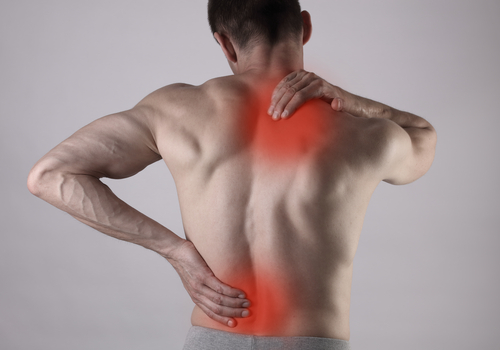UK Study Evaluating COVID-19 Lockdown Effect on Musculoskeletal Health

Around 2,000 patients across the U.K. with ankylosing spondylitis (AS), psoriatic arthritis, or chronic pain conditions such as fibromyalgia will take part in a study aimed at understanding how the COVID-19 lockdowns may be impacting their health.
The charity Versus Arthritis and the British Society for Rheumatology (BSR) together granted £52,000 (about $64,850) to Gary Macfarlane, a professor at University of Aberdeen, to launch the study.
Extended periods in close quarters can exact a toll even among healthy people. But medical practitioners are concerned that patients with AS and other disorders affecting the joints may experience greater complications due to the lockdowns.
“One in four people have a musculoskeletal condition like arthritis in the UK — half of those people live with pain every single day,” Stephen Simpson, PhD, director of research at Versus Arthritis, said in a press release. “The experience of self-shielding and social distancing during lockdown can have negative impacts on the health and condition of people with arthritis, with anxiety and reduced physical activity causing symptoms to flare.”
Macfarlane, clinical chair in epidemiology, said the lockdowns may create an increased risk of “forgetting” people with chronic diseases when their need is greatest.
“We know that two key aspects of musculoskeletal health are taking exercise and maintaining good mental health,” he said. “The ability to take exercise is likely to have been restricted while mental health is likely to be affected by the anxiety around the pandemic generally, together with concerns about one’s own health as well as the effects of social isolation.”
In the case of AS, periods of inactivity are known to aggravate symptoms such as pain and stiffness in the lower back and hips. Regular treatments can lessen these symptoms and may even slow disease progression. However, the lockdown and social distancing requirements imposed by COVID-19 have complicated the regular treatment of AS and other musculoskeletal disorders.
“As a result, there will be reductions in access to some services, such as physiotherapy, and procedures, such as injections, just at a time when patient need may be greatest,” Macfarlane said. “In addition, some patients will have been categorised in high-risk groups and received letters in relation to ‘shielding’ which requires them to stay at home.”
The study will assess participants’ current health and experiences during the lockdown, while also asking about perceived current and anticipated care needs, Macfarlane said. In-depth interviews will be conducted with some survey participants at a later date. In addition, the study may help determine how to better integrate telemedicine into routine healthcare in the U.K.
In fact, the extended lockdown has increased appreciation of telemedicine, with the National Health Service in England turning to remote consultations to minimize the risk of infection for both healthcare professionals and patients.
Overall, said Simpson, “this study will help us better understand the impact lockdown is having for people with musculoskeletal conditions, and allow us to improve healthcare and the management of these conditions. It is a great example of how research is adapting to meet the needs of people during the pandemic.”






